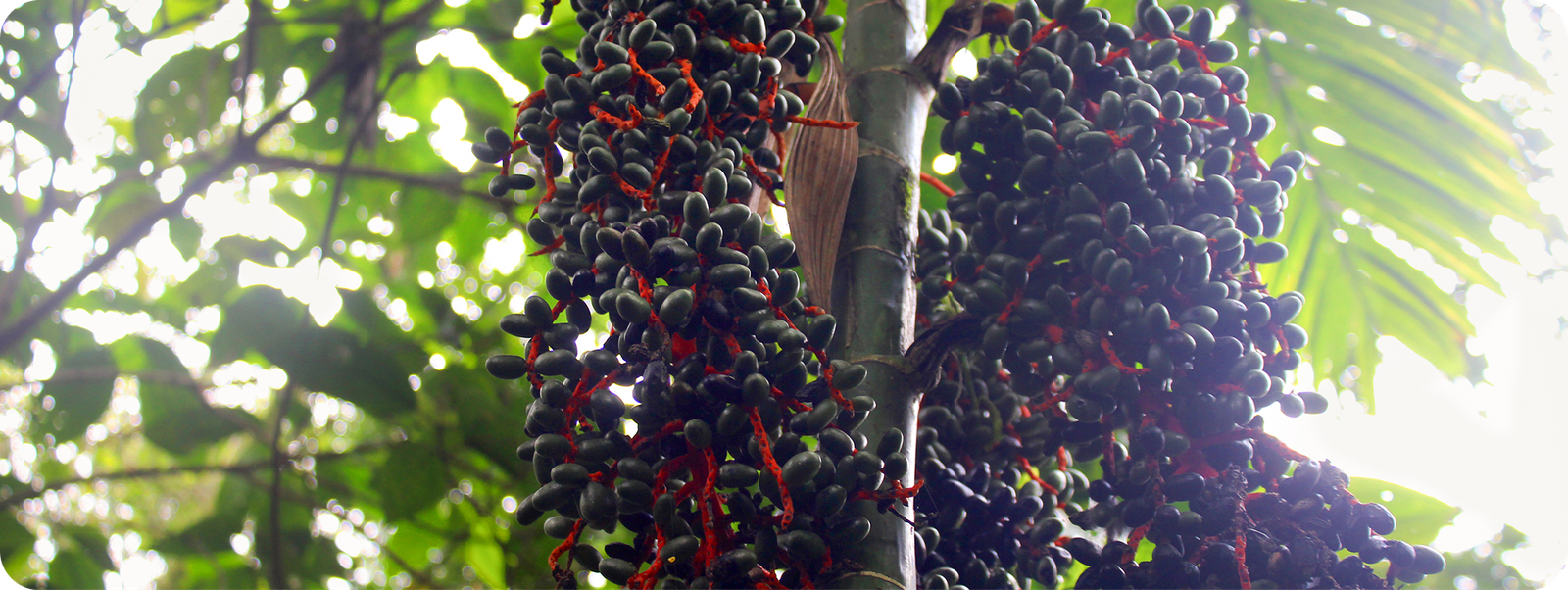NEXUS NETWORK
NATURE X VALUE WEBS X TERRITORIES
In regions rich in biological diversity and traditional knowledge such as Colombia, socio-biodiverse bioeconomy systems are projected as a path towards natural conservation and the creation of livelihoods in the territories. The NEXUS network was born as a space to connect and weave value webs in a collaborative way between territories, communities, companies, institutions and research institutions from different areas of knowledge.
MOTIVATION
Biobased value chains and webs are key for the transition to the bioeconomy. In regions rich in biodiversity, ethnic diversity and traditional knowledge, such as Colombia, advancing actions towards socio-biodiverse bioeconomies implies to approach research, development and innovation (R&DI) for biobased value webs from a territorial perspective. A top priority corresponds to setting bioeconomies that can serve multiple objectives simultaneously, such as conserving biodiversity, ensuring fair livelihood options in territories and fostering resilience and diversity of agri-food systems.

In Latin America there are numerous examples of biodiversity-based value webs, ranging from the use of wild plants for local practices and high value-added products, to new crops for agricultural diversification, provision of ecosystem services and landscape restoration. In Colombia, non-timber forest products (NTFP) value webs from native plants such as the palm Naidí (Euterpe oleracea) and Corozo (Bactris guineensis) have been prioritized, among other plants from native flora such as Seje (Oenocarpus bataua), Camu camu (Myrciaria dubia), Moriche (Mauritia flexuosa), Copoazú (Theobroma grandiflorum), Milpesos (Oenocarpus bataua) and Cacay (Caryodendron orinocense).
The development of biodiversity-based value webs requires the identification of challenges and gaps as basis for R&DI actions through multi-actor collaboration. In this context, it is highly relevant to foster joint inter- and transdisciplinary R&DI to connect the expertise of research groups and practitioners of both countries along biodiversity-based value webs
ORIGIN
The NEXUS network began to be created through research on biodiversity bioeconomies promoted by the Alexander von Humboldt Institute for Biological Resources in Colombia and Colombian researchers in Germany at the University of Hohenheim. Through the exchange of experiences around native Latin American palms such as those of the genus Acrocomia and their importance for the bioeconomy, the formation of the NEXUS network is proposed as a space to promote research aimed at providing solutions and guiding the creation of socio-biodiverse bioeconomies in the territories of Colombia, under a participatory approach that facilitates the co-creation of knowledge resulting in biodiversity value chains and webs, both in wild production systems as well as in agro-biodiverse systems. In 2023, the NEXUS network initiative is shortlisted to be presented during the “Colombia Day” event, a meeting dedicated to scientific cooperation between Germany and Colombia. This took place in Bonn, with the participation of the Colombian and German scientific community from various fields of knowledge. After a presentation that invited the audience to dream with this network and make possible the connection between producers and researchers working on the sustainable use of biodiversity in various territories of Colombia, the NEXUS network initiative was chosen to hold an initial workshop in September 2024. There, the NEXUS network was born, a web in a continuous process of evolution.
OUR MISSION
Promote the biodiversity bioeconomy through research, development, innovation and social appropriation of knowledge to generate practical and specific solutions to the territorial needs associated with production systems based on non-timber forest products (NTFPs) and agro-biodiverse systems.
OUR VISION
Nexus will be a leading platform for research, development, innovation and social appropriation of knowledge that facilitates the articulation of stakeholders and the generation of shared value in the transition to a bioeconomy based on socio-biodiversity through sustainable value chains and webs of non-timber forest products and agro-biodiverse systems. In this way, Nexus is projected as a space for the co-creation of knowledge and information to guide the bioeconomies of the territories and public policies.


